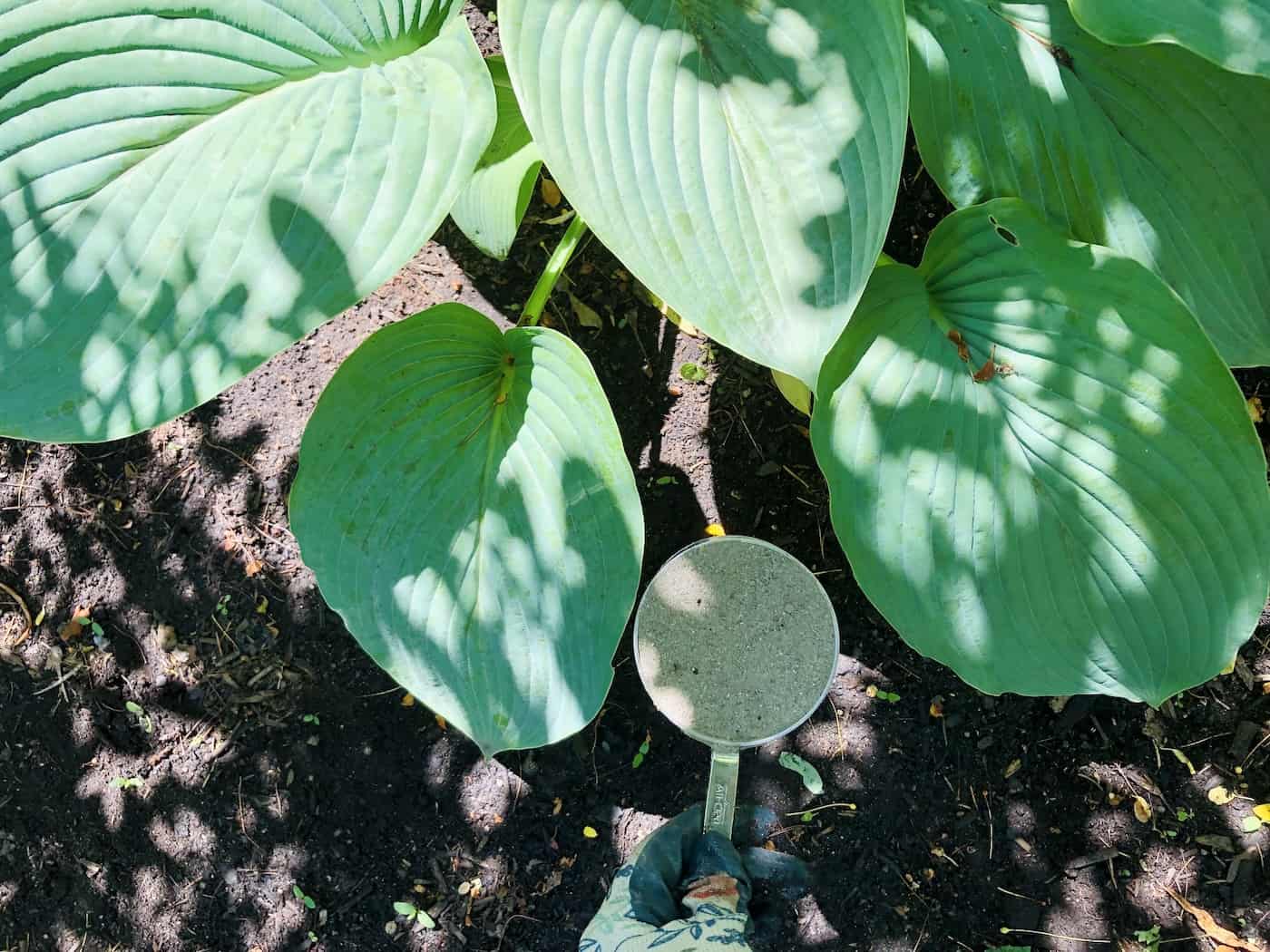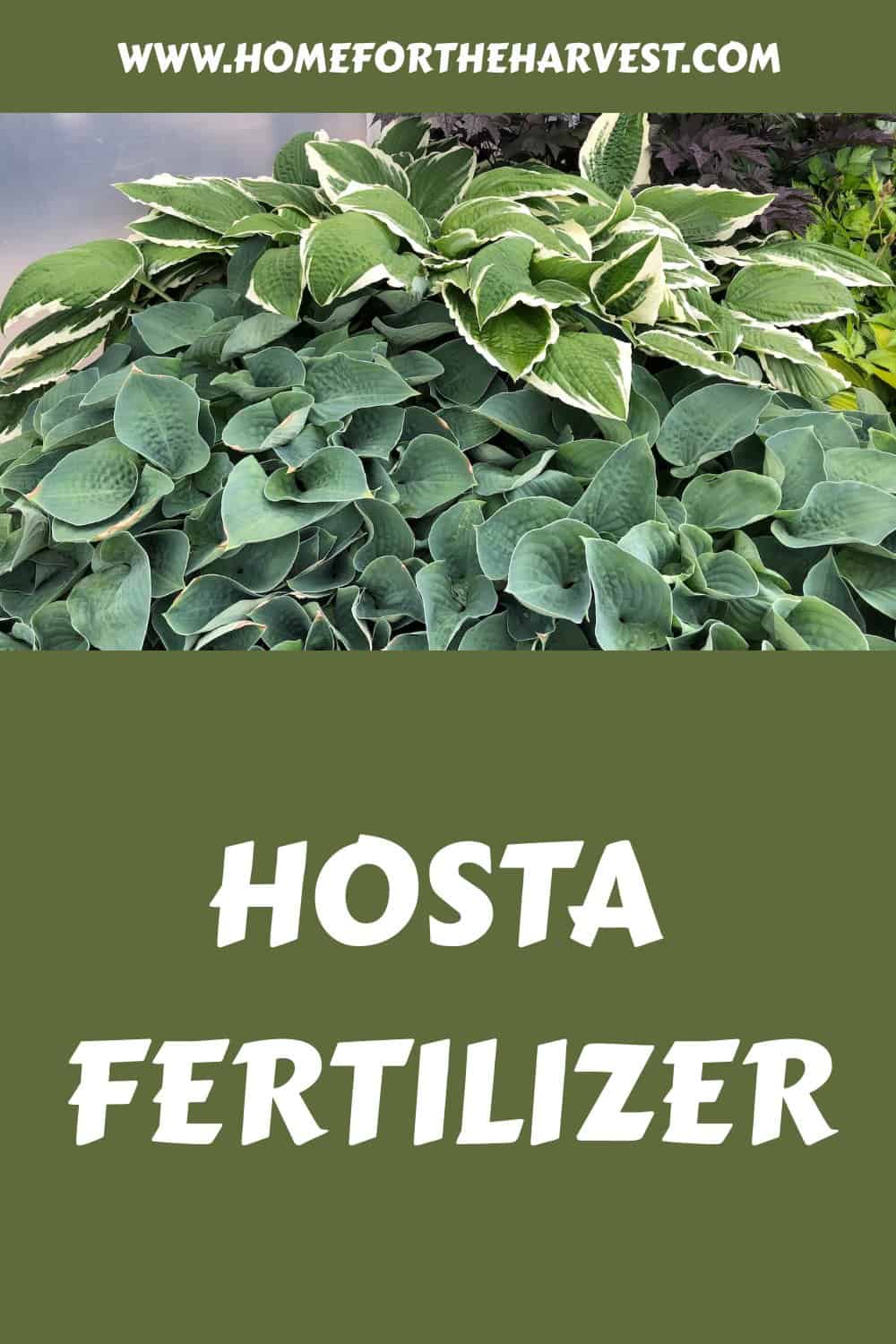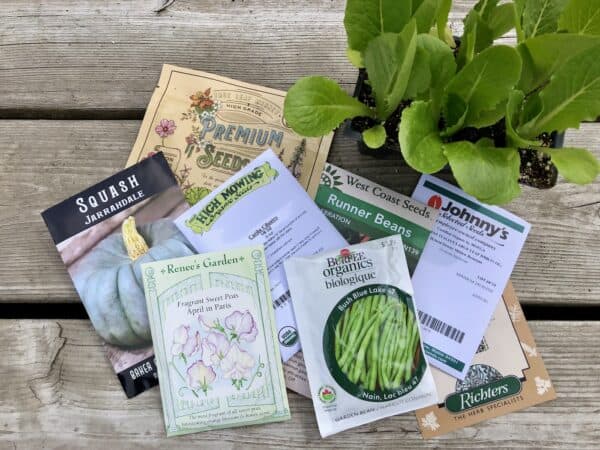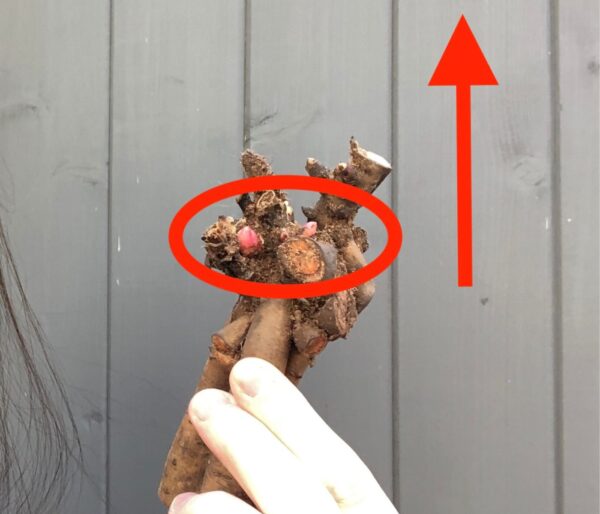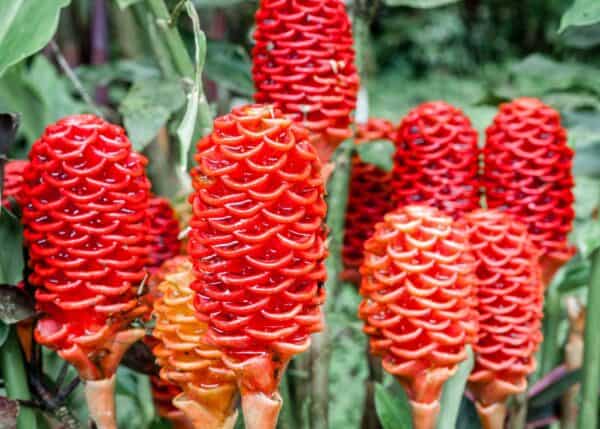The best hosta fertilizers tend to be slow-release balanced fertilizers. These products tend to have a fairly even NPK ratio, like 4-4-4 (for example). Some growers also like to supplement with foliar spray fertilizer high in nitrogen and magnesium on the leaves in the spring and early summer. Lastly, the soil can be enriched with organic matter like compost prior to planting or after planting as a regular nutrient-rich soil mulch.
Slow-release balanced granular fertilizers
There are several excellent options for generally balanced fertilizers that release slowly and are in a granular form that’s easy to sprinkle on the soil surface. Here are some great options for helping your hosta plants grow:
1. Jobe’s Organics Purpose Granular Fertilizer
Jobe’s Organics Purpose Granular Fertilizer is an all-purpose fertilizer that can be easily found at Home Depot and other big retailers. This product is OMRI-listed for organic gardening, and it’s made from 100% natural and organic ingredients. The fertilizer contains bone meal, potash, feather meal, and composted chicken manure. This 4-4-4 fertilizer is perfect for feeding hostas and other plants that have both lush green leaves and summertime flowers.
2. Down to Earth All Natural Acid Mix Fertilizer
Down to Earth All Natural Acid Mix Fertilizer is an all-purpose fertilizer for plants that thrive in acidic soil (like hostas). It comes in a small box, perfect for those with smaller yards. This mix is still balanced, with an NPK of 4-3-6, but is weighted a little more heavily to the nutrients that are likely to be deficient in residential soils. The fertilizer contains fish bone meal, cottonseed meal, kelp meal, langbeinite, and rock phosphate.
3. Espoma Holly-Tone
Espoma Holly-Tone Organic Fertilizer is another all-purpose fertilizer that’s perfect for hostas (and other plants that prefer acidic soil). This product is made from 100% natural ingredients like bone meal, sulfate of potash, blood meal, and feather meal. Holly-Tone also contains micronutrients like zinc and iron that may be lacking.
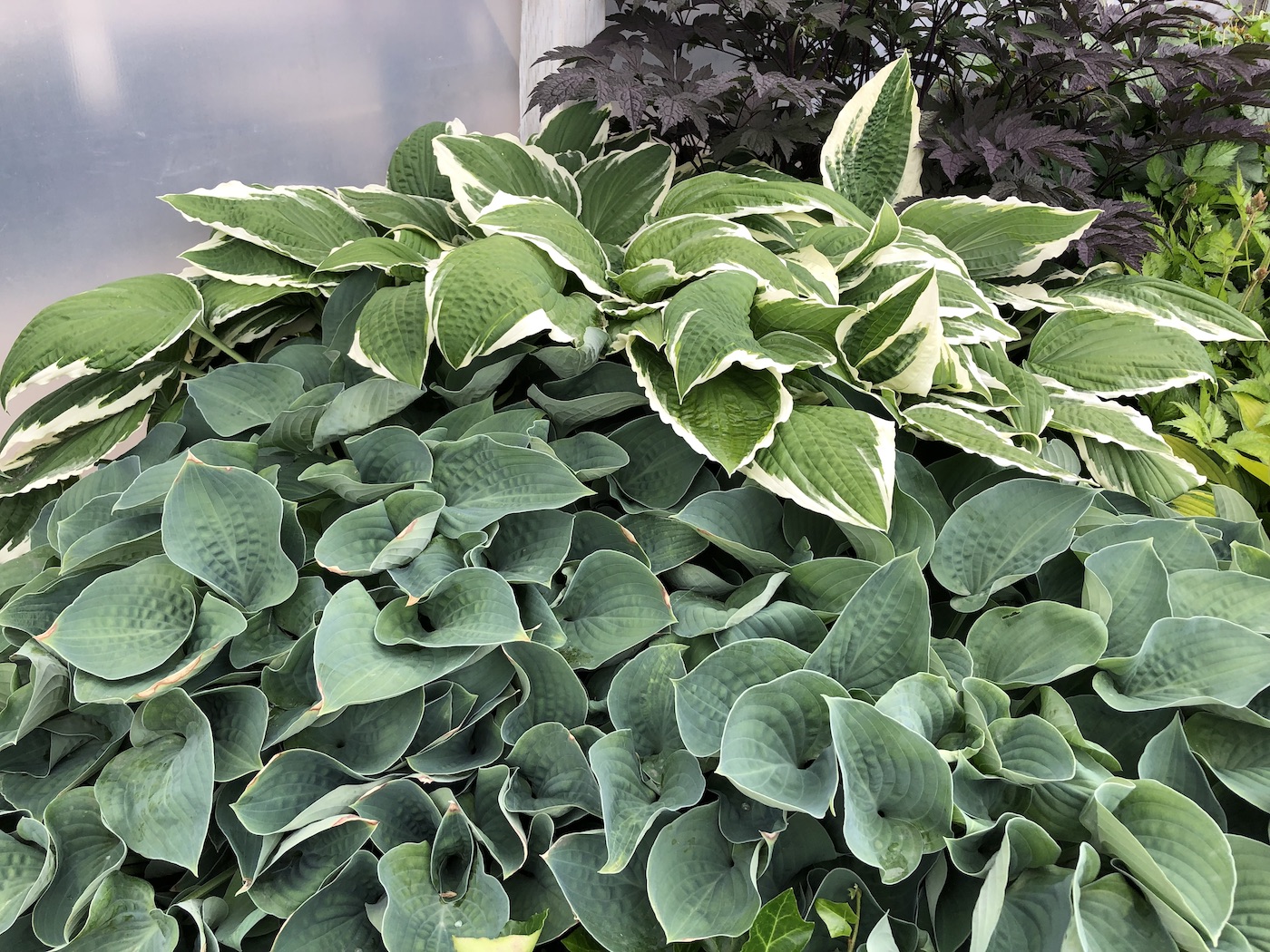
Foliar fertilizer sprays
In addition to a slow-release balanced fertilizer, hosta growers often supplement with foliar fertilizer sprays. Foliar fertilizer is a great way to give hostas an extra boost of nitrogen, which is the nutrient hostas need most for lush growth. Some growers also like to use a magnesium-rich spray if their plants are deficient in this mineral.
Here are some excellent foliar fertilizer products.
1. FOOP Mist Ready to Use Organic Foliar Spray
FOOP Mist Ready to Use Organic Foliar Spray is a natural foliar spray fertilizer product that comes in a spray bottle. This mix is a bit smelly but is nicely already in the bottle (no pouring liquid fertilizer into your own spray bottle). It also contains nutrients beyond just nitrogen, especially important minerals like magnesium and calcium.
2. Bloom City Organic SuperGreen Kelp Foliar Spray
Organic SuperGreen Kelp Foliar Spray by Bloom City is a bottled foliar fertilizer derived from seaweed. This is an excellent all-round product but is especially good for providing bio-available magnesium to your hostas. This helps the plants with photosynthesis so they can create more energy (and larger, more abundant leaves). To use, mix a teaspoon into a liter of water in your own spray bottle and apply directly to the leaves of the hosta.
Starter fertilizers for planting and transplanting
Whether you’re planting new hosta plants or transplanting existing hostas, many growers like to work some starter fertilizer and organic matter into the soil prior to digging the planting hole. Here are some excellent options for mixing into the planting hole:
1. Espoma Bio-Tone Starter Plus Fertilizer
Espoma’s Bio-Tone Starter Plus Fertilizer is a great option for hostas (or any other type of plant). This product contains mycorrhizal fungi, which help hostas develop a strong root system, and it’s also enhanced with kelp meal to provide nutrients that might be lacking in the planting area.
2. Down to Earth Starter Mix
Down to Earth’s Starter Mix is a balanced (3-3-3) product formulated from natural materials like fish bone meal and alfalfa meal. This product also contains mycorrhizal fungi to help hostas develop a strong root system.
Nutrient-rich natural soil amendments
In addition to packaged fertilizer products, natural soil amendments can really help a hosta thrive. This includes mixing organic material in with the soil prior to planting, as well as adding a fresh, thin layer of organic mulch in the spring and fall.
In terms of pre-planting soil amendments, many gardeners till the soil in the entire mature footprint of the plant and mix in organics like coco coir, peat moss, compost, or rotted manure. You can also correct overly alkaline soil by adding a soil acidifier (always do a soil test).
For mulching hostas, many gardeners like to use shredded bark, compost, cocoa shells, coconut coir, pine needles, or hardwood chips. A 1-inch layer of mulch helps protect hostas from extreme temperatures and helps the soil retain moisture.
Be sure to pull back the mulch in early spring so the hosta leaves can emerge without issue. Keep the mulch away from the base of the plant during the growing season to lessen the chance of fungal disease. The mulch should also spread out further than the leaves of the plant in the summertime.


